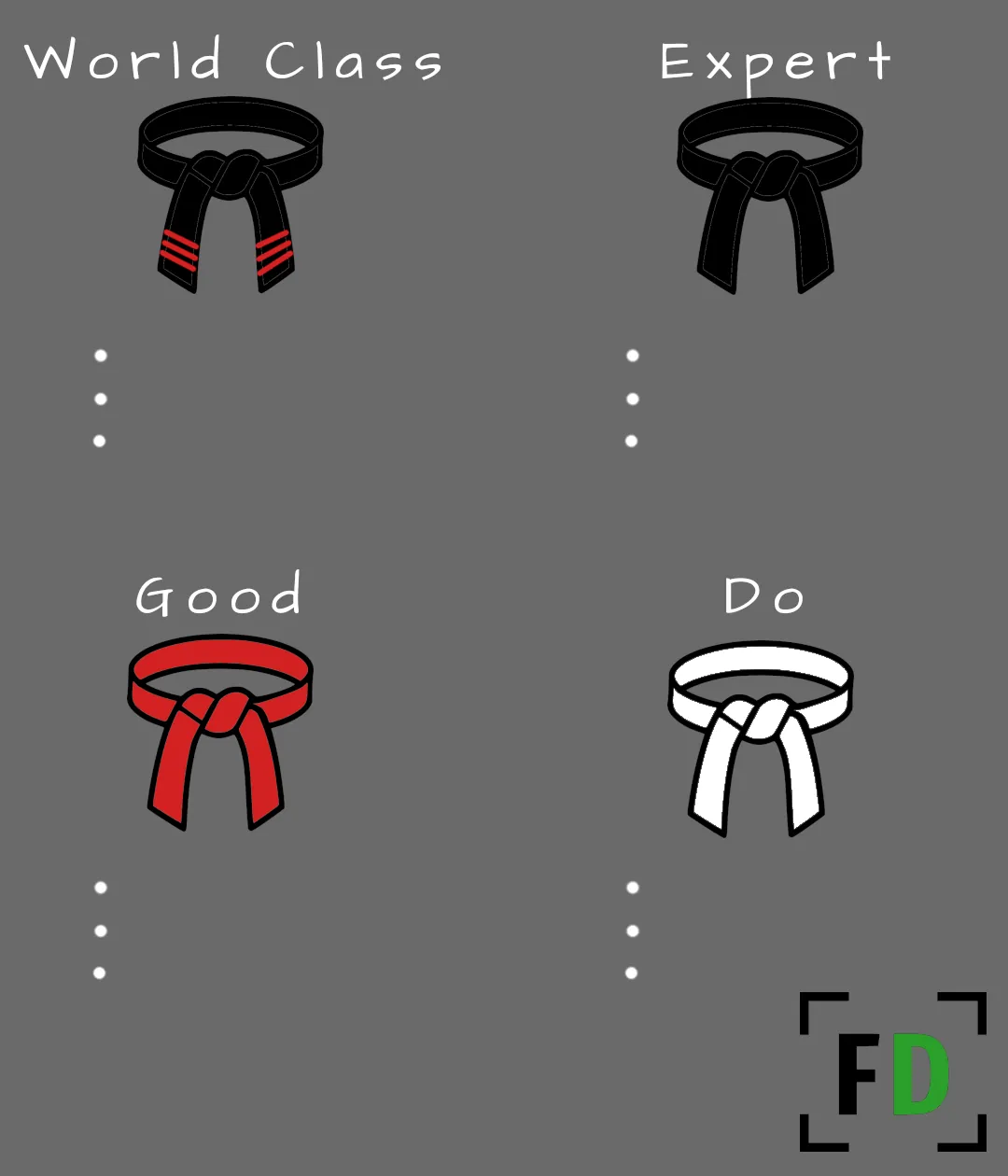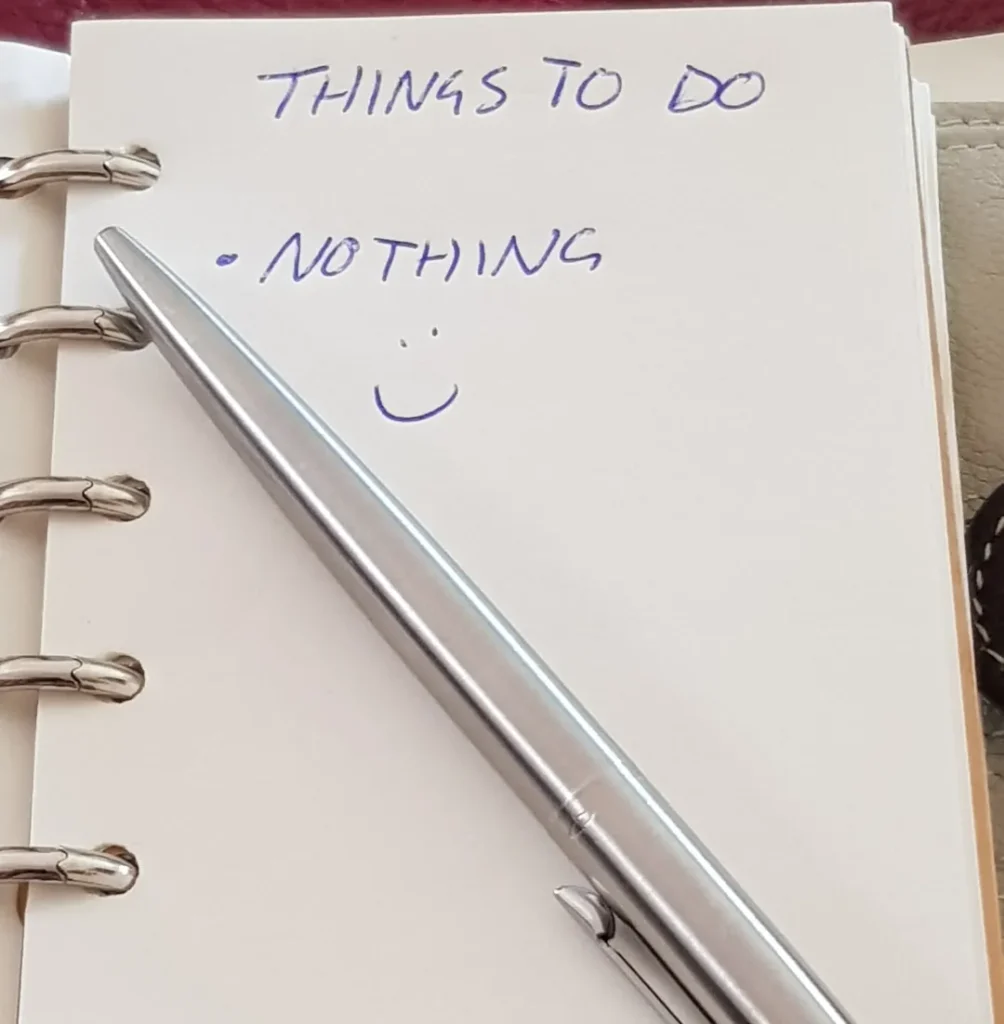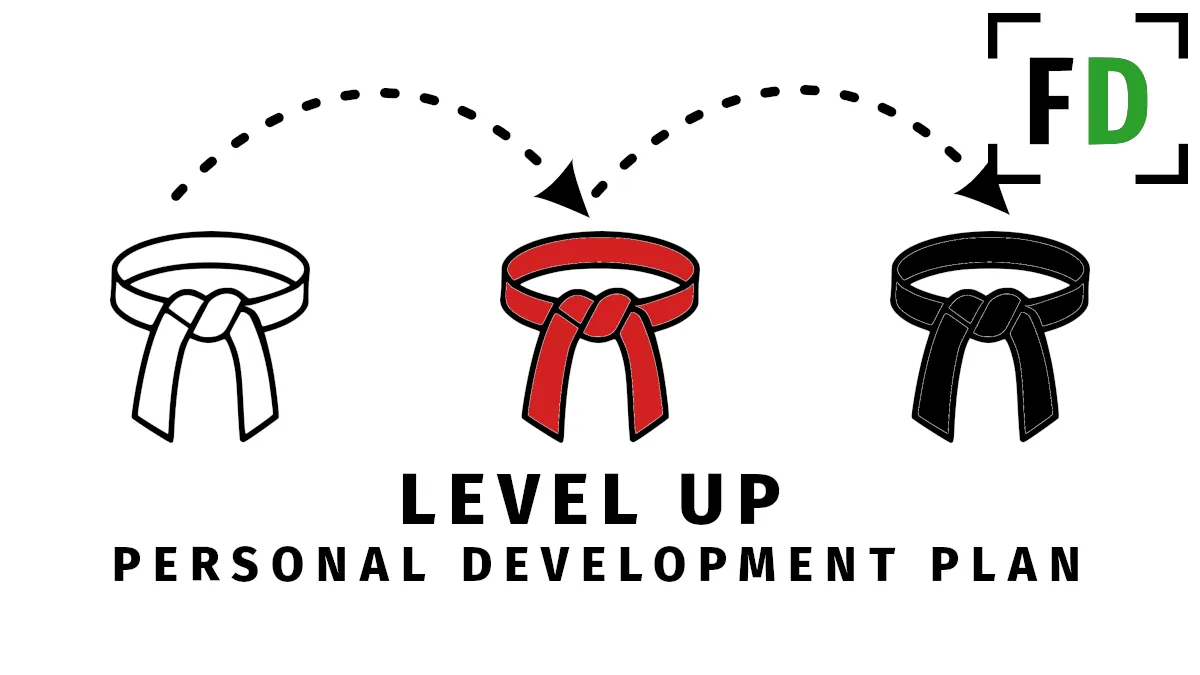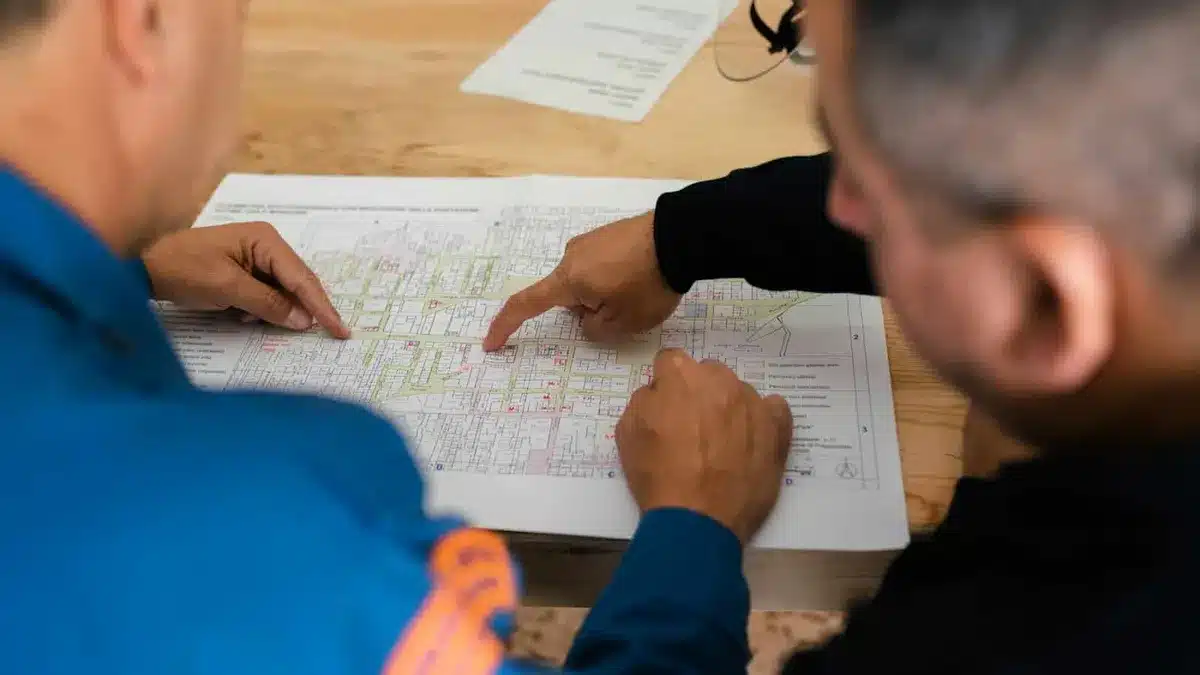You can’t face dragons as you are, especially not the big ones. You need to max out your stats and become a better, more competent version of yourself. Achieving personal growth won’t happen over a long weekend, no matter how intensely you work on learning new skills. No, it’s going to take more time than that, and without a strong personal development plan, you’ll go off course, get lost in the weeds, or just end up taking too long.
Build your personal development plan today, then start working on it every day. Soon enough, the dragons will fear you.
A Vision of Two Yous

In some unknown bedroom, the covers start moving as someone emerges from the mess on the bed. It’s you ten years in the future. Let’s see how you’re getting on.
Putting two feet on the floor and groaning as you get up, it becomes clear you’ve put on a few pounds. A glance at the clock tells you you’ve woken up late – it looks like that isn’t a rare occurrence. You’re living in a small one-bedroom apartment, and you’re alone.
I don’t know you, but I know that no man wants to be unhealthy, poor, and alone, especially as he gets older. This version of you never made his personal development plan.
But wait!
Another vision of you is starting to appear. Let’s take a look.
I see the bed, but you’re not in it. It’s your wife waking up; she glances over to the balcony. There you are, already dressed and looking good (you’ve been working out,) talking to someone about business on the phone. You smile as you see your wife notice you through the glass door.
You take two Partagas P2s from your humidor as you walk back through the bedroom and have breakfast with your family. They ask what you’ll do today, and you give them an idea, leaving out the details. Then jump in your car and go destroy another day.
We all know that we could easily end up as the first guy – or much worse. I fear becoming that guy every day.
Personal Development: Where to Start

Every life coach, personal trainer, and lifestyle guru has their own way of helping you become a better version of yourself. But I suggest you start where you are.
Not everyone can start by running a quarter mile on a treadmill or visualizing success, not everyone can start with a five-year plan, or not everyone can start with even a simple to-do list for the day. But everyone can start where they are.
Experts agree that taking photos of where you are is much more effective if you want to lose weight (or gain it.) The photos show what you looked like on day one. That’s where you are.
- It’s something to motivate you when times get tough
- It’s proof that you’re not lying to yourself
- It will show you how far you’ve come
So take a snapshot of who you are at this moment in time, and be realistic with yourself. Split a piece of paper into quarters and label them:
- What Are you world-class at? (Think 9th dan world champion)
- What are you an expert in? (Think black belt)
- What are you good at? (think mid-high colored belt)
- What else can you do? (think white or low-colored belt)
Next, you need some categories. Or find a huge list of personal development ideas here.
- Career skills (depends on your job, related software, sales skills, etc.)
- Social skills (public speaking, persuasion, charity)
- Athletic skills (Squat PR, distance run, sports)
- Creative skills (photography, writing, art, etc.)
- Life skills ( Cooking, DIY, Dressing-well, etc.)
- Intellectual ( classic literature, psychology, philosophy, science, etc.)
- Family ( Father, Husband, Son, etc.)
- Religion & Spirituality (Bible, prayer, meditation, etc.)
You might not care about getting a family or being creative right now, but guess what? Neither does the fat guy waking up late in the first example. Still, you should note where you are in these categories because one day, as you grow, you will care. So if you’re not married, don’t have children, and don’t even visit your parents regularly, put that in the “white belt” quarter.
Don’t put yourself in the world-class category just because you think you are; you need some proof! Where’s the photo? If your sales skills are world-class, you will have sold multi-million dollar houses or businesses or something. You can’t just say you have it; you must have the proof.
You Must Have an Aim
I’m going to assume that, like me, you aren’t world-class at anything yet. You haven’t won an Olympic medal, haven’t built a multi-million dollar business, and aren’t regarded as a literary giant or hold the record for juggling seven balls (that one goes to Anthony Gatto.)
But you might be an expert in something and good at a few things. Great. No matter where you’re at right now, that’s a great place to start because you know where you are. (Taking a long trip is much easier when you know where you are to begin with.)
But you want that piece of paper to look different in three, five, or ten years time. So, let’s go back through those levels and make some goals!
- What do you want to be world-class at?
- What do you want to be an expert in?
- What do you want to be good at?
- What else do you want to do?
Flip over the page and write down the skills and belt levels you’ll have in the future. That’s your simple personal development plan. Simply making goals has benefits, but this method adds the power of visualization, which experts like Tony Robbins use to promote productivity.
Goal setting isn’t as simple as you think, and setting SMART goals isn’t the answer to all your problems (even though it’s all the advice you usually get for creating a development plan.) Don’t swamp yourself with too many goals and objectives, and don’t set your goals too high.
You might think, “I want to be world-class at everything I do, that’s the best goal I can have.” But that only sets you up for failure. You might become world-class at one thing if you dedicate all your time to it, but you’ll have to accept that there won’t be space for much else in your life. You think Mike Tyson had time and energy to do anything other than train when he was the heavyweight champion of the world?
Organizing your personal development goals into these categories will relieve you of the stress of progress and the guilt of not making much progress.
Say you want to learn Spanish (intellectual goal) and piano (creative). Without deciding what level you are aiming for with them, you feel like you should spend equal time developing both. So you only spend 45 minutes playing piano every other day and make plodding progress, and your Spanish never seems to get much better.
If you had decided at the start, “I want to be good at piano, good enough to play a few songs and sing along. But I want to become an expert in Spanish and sound like a native speaker.”
With these goals set, you would realize that you need to spend two or more hours each day on Spanish, utilizing monk mode will get you there even faster. You can become good enough to play a few songs, only practicing piano once or twice a week.
So Turn that piece of paper over. What would you want it to look like in five years time? Would you have anything in the world-class quarter? Would you still be a white belt in that career skill? Would you be a black belt father and husband?
Spend some time imagining the person you want to be, then ask yourself what you need to do today to become him. Here’s my simple guideline:
- Do it every day to become an expert (black belt)
- Do it every week to become good (colored belt)
- Do it every month just to do it (white belt)
Leave Space To Grow

Twenty years ago, I was obsessed with hip-hop and traditional Chinese martial arts; I’m no longer obsessed with either.
You will change, and your goals will change as you grow older and develop. Spanish may no longer be important to you. You may suddenly want to become a world-class cave diver in ten years. Who knows.
There must be space in your life for these changes to happen. You can’t turn a car around in a garage; it needs space to change directions.
It’s tempting to schedule all your time and pack in as much learning, skill acquisition, and practice as you can every day, but downtime is important, too.
In the Four-Hour Workweek, Tim Ferris writes about mini-retirements. The idea is that some people have decided to take their retirement while they’re still young enough to enjoy it. These people quit their jobs every decade or so and spend a year or two living off their savings. They move to exotic locations, spend their time being creative, learning languages, or just doing whatever they wish they could have done while holding down their job. Often, the skills they develop while on their mini-retirement turn into their next job or business venture.
That’s an extreme example, but it shows that people who can’t make time and space in their daily lives end up making the time some other way. I recommend you leave yourself some space to explore new ideas more regularly than every ten years!
You don’t have to go looking for something new to do. But when inspiration strikes and you think, “Hey, it would be cool if I could…” It would be nice to have the time, space, and energy to pursue that thought.
Remind Yourself of the Other You for Motivation
Rats run faster when they smell a cat than when they smell a treat.
The rewards of life will only motivate you so far, so you must supplement your motivation with a bit of fear. There’s nothing more scary than ending up the first version of you we imagined at the start of this post.
So look at the future you on your personal development plan and at you now on the other side, but remember that the road isn’t guaranteed.
Meet Gregory, a writer and the brains behind Face Dragons. He's the go-to guy for getting things done.
Gregory's been living the digital nomad life in Asia for as long as anyone can remember, helping clients smash their goals. He writes on topics like software, personal knowledge management (PKM), and personal development. When he's not writing, you'll catch him at the local MMA gym, nose buried in a book, or just chilling with the family.







